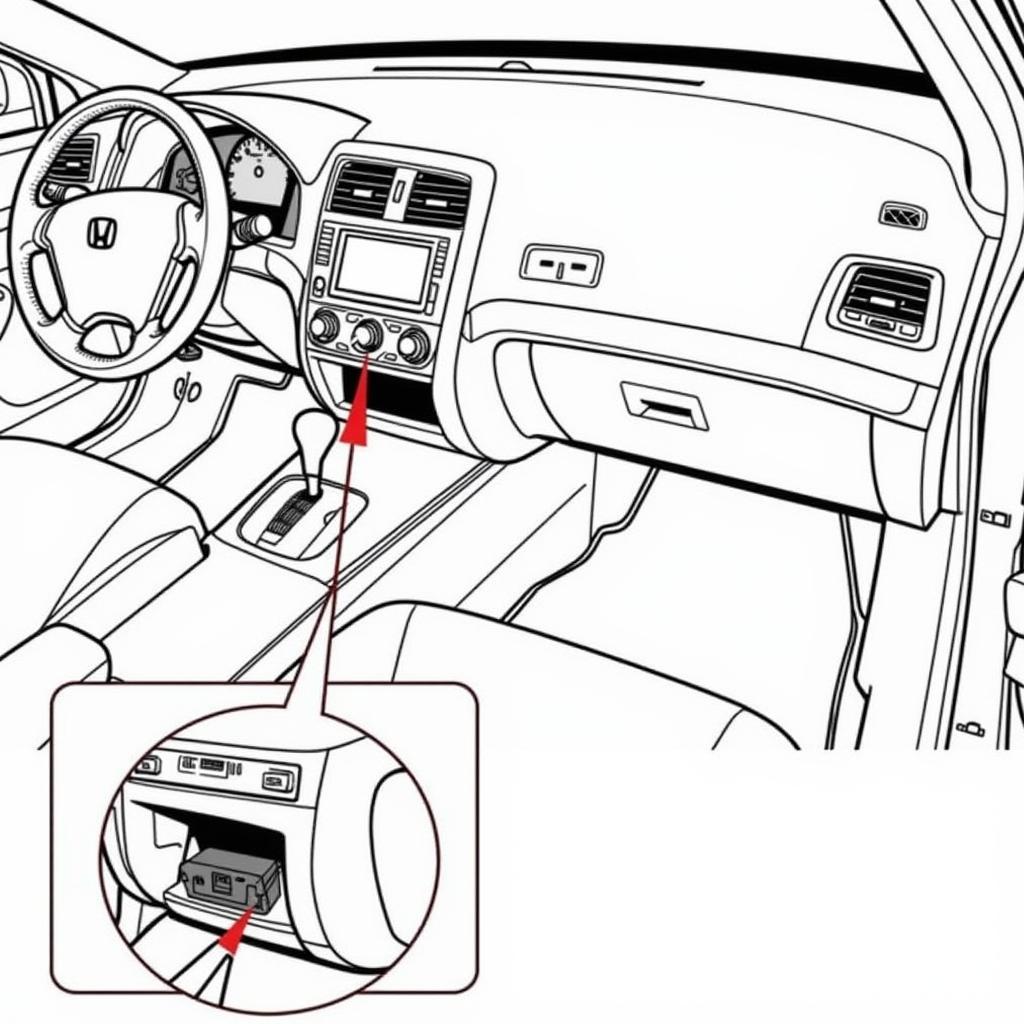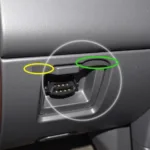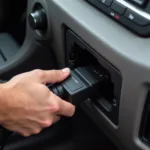The 8th generation Honda Civic, produced from 2006 to 2011, is known for its reliability and fuel efficiency. However, even the most dependable cars need to pass emissions tests. This is where understanding your car’s OBD2 system and its role in the DEQ test becomes crucial. This article will guide you through everything you need to know about 8th Civic OBD2 DEQ, ensuring you’re well-prepared for your next emissions test.
The OBD2 system, standard on all vehicles since 1996, continuously monitors your Civic’s engine and emission control systems. It does this by analyzing data from various sensors, looking for any irregularities that could increase emissions. If a problem is detected, the system triggers the check engine light and stores a diagnostic trouble code (DTC) in its memory.
During a DEQ test, technicians connect an OBD2 scanner to your Civic’s OBD2 port, usually located under the dashboard on the driver’s side. This scanner retrieves the stored DTCs, revealing any potential emission issues. If the check engine light is on, or if stored codes indicate problems, your Civic may fail the DEQ test.
Common OBD2 Codes for 8th Civic DEQ Tests
Several OBD2 codes are commonly associated with 8th generation Honda Civics during DEQ tests. These include:
- P0420: Catalyst System Efficiency Below Threshold (Bank 1): This code suggests an issue with the catalytic converter, which reduces harmful emissions.
- P0138: O2 Sensor Circuit High Voltage (Bank 1, Sensor 2): This indicates a problem with the downstream oxygen sensor, responsible for monitoring catalytic converter efficiency.
- P0171: System Too Lean (Bank 1): This code points to a lean fuel-air mixture, potentially caused by vacuum leaks or faulty fuel injectors.
- P0300: Random/Multiple Cylinder Misfire Detected: Misfires not only affect engine performance but also increase emissions. This code suggests investigating spark plugs, ignition coils, or fuel delivery.
- P0455: Evaporative Emission Control System Leak Detected (Gross Leak/No Flow): This code indicates a leak in the EVAP system, which prevents fuel vapors from escaping into the atmosphere.
What to Do If Your 8th Civic Fails the DEQ Test
If your 8th Civic fails the DEQ test due to OBD2-related issues, don’t panic. Here’s a step-by-step guide:
- Identify the Problem Codes: Ask the DEQ technician for a printout of the specific OBD2 codes triggering the failure.
- Research the Codes: Use online resources like OBDFree to understand the meaning of each code and potential causes.
- Inspect Your Vehicle: Check for obvious issues like loose gas caps, damaged vacuum hoses, or worn spark plugs.
- Consult a Mechanic: If you can’t identify the problem yourself, take your Civic to a trusted mechanic specializing in Honda vehicles.
- Repair and Retest: After addressing the issue, ensure the mechanic clears the codes. Schedule a retest with the DEQ to obtain your passing certificate.
Expert Insights on 8th Civic OBD2 DEQ
“Many 8th Civic owners overlook regular maintenance, which can impact emissions,” says John Miller, a certified Honda mechanic with over 20 years of experience. “Simple things like using high-quality fuel, replacing spark plugs on schedule, and addressing check engine lights promptly can significantly improve your chances of passing the DEQ test.”
He adds, “Don’t underestimate the importance of a healthy catalytic converter. If you notice a decrease in fuel efficiency or a sulfur-like smell from the exhaust, it might be time for a replacement.”
Conclusion
Understanding your 8th Civic’s OBD2 system and its role in the DEQ test is crucial for a hassle-free emissions testing experience. By familiarizing yourself with common OBD2 codes, proactively addressing potential issues, and seeking professional help when needed, you can ensure your Civic remains environmentally compliant and roadworthy.


